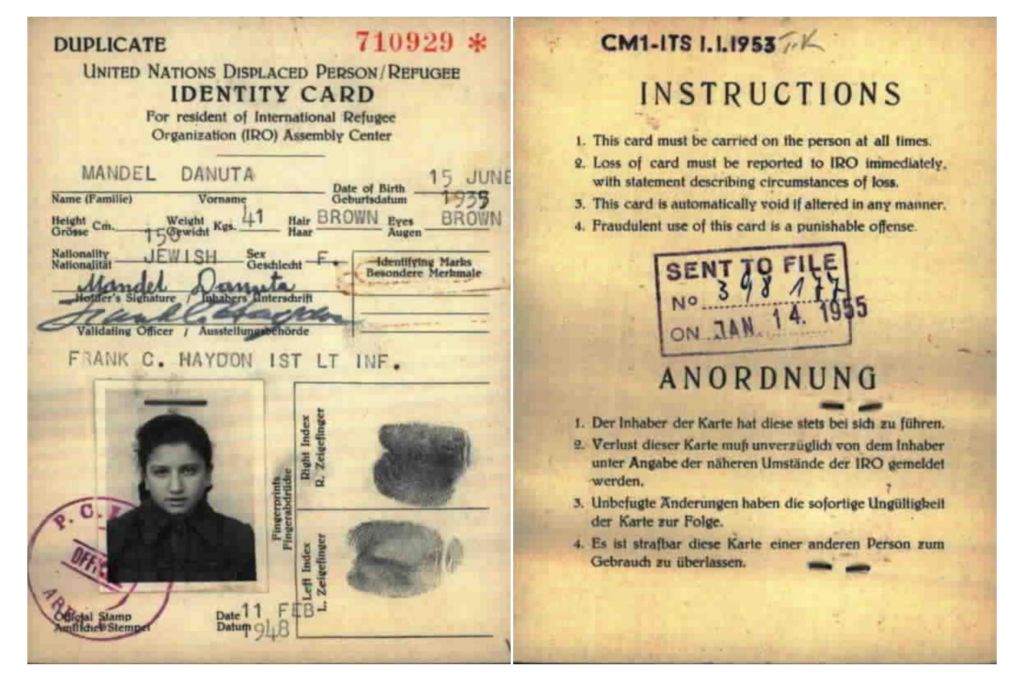
Dina Schweizer comes from what was formerly the Polish town of Żółkiew, now Zhovkva in the Ukraine. She is not sure of the exact date of her birth as none of those who knew it survived the Shoah. Dina Schweizer, then known as Danuta Mandel, was seven or eight years old when the German Wehrmacht occupied her native city. The family was forced into a ghetto where her mother died of thyphus and her father was murdered. Her siblings were sent to the Janowska forced labor camp in Lemberg/Lwów (now Lviv). Her older sister helped her to escape and a former nanny hid the girl at her sister’s under the name Marina. “I always had to be on the alert; I was always suspicious and I always hid my face,” she remembers.
After the end of the war, she was sent to a so-called Children’s Center, a home for orphaned children in Aschau, run by the aid organization UNRRA. On average 400 Jewish children lived there, learned Hebrew and waited to emigrate to Palestine. In 1946, she found an uncle of hers, Salaman Mandel, who had survived with his family using false passports. He sent Danuta to Palestine in 1947 on the refugee ship “Exodus,” together with his two daughters Ada and Giza. For Danuta, this was yet another odyssey. “The ship left the port of Marseilles illegally in the dark. In British waters, it was then surrounded by British ships. After a short battle, the captain surrendered. In Haifa, only the wounded passengers were taken ashore, the others had to return to Germany, to the British zone” where they were interned once again.
Salaman and Henia Mandel eventually took the three girls to the Neu Freimann Displaced Person’s (DP’s) camp in Munich. The two adults and the three girls lived together with another family in one of the little houses with pointed roofs that made up the settlement which had been seized by the US military administration. “We used the kitchen together, with each family seated at one half of the table.” Danuta, by now almost 13 years old, went to school in the DP camp. She can remember evenings when plays were performed.
After the foundation of the State of Israel, Danuta Mandel emigrated there with her relatives. Since 1974, however, she has been living in Luxembourg.
With thanks to Dina Schweizer for these recollections.
The exhibition “Munich Displaced. The Surviving Remnant” is a stocktaking on Munich’s post-war history. Much detailed information as well as photos and memorabilia are still missing. In the meantime, visitors, descendants of Displaced Persons from Munich and other interested parties have shared their memories with us.
